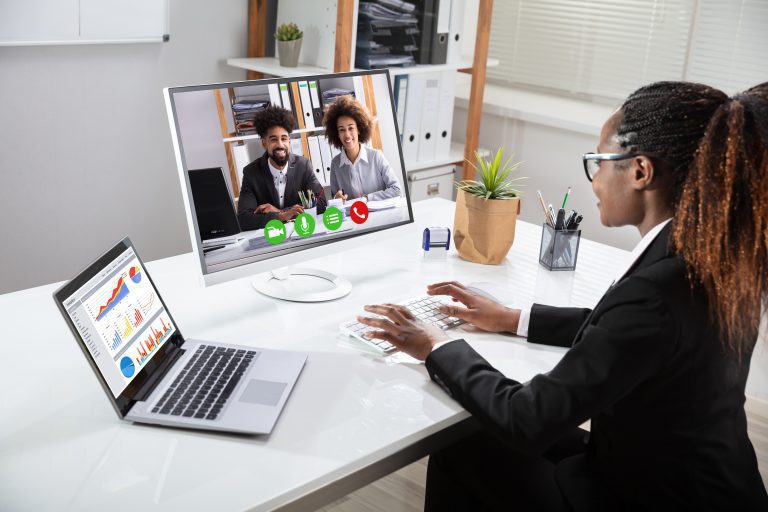A survey of business decision makers has found that just 2% of people want to work from the office full-time after COVID-19, with workers preferring to split their time between the home and the office from now on.
In the survey, carried out by workplace scheduling tool Smartway2, 200 business decision-makers involved in employee experience – including Facilities/CRE, HR and IT – revealed sentiments about returning to work amidst the ongoing effects of the coronavirus pandemic.
The study clearly shows a shift towards the idea of flexible working among decision makers and employees, but also that people do not want to move to remote working fully as they love the sociability of the office as well.
With many people working remotely for the first time, the global debate has raged among employees about whether there is still a need for physical office space.
The survey found that the vast majority of employees enjoy the flexibility of working between their home and the office, with only 2% of people saying they want to work in the office all of the time from now on:
When asked whether the pandemic was likely to accelerate their company’s shift towards new ways of working, 78% said they agreed with the statement:
40% of those surveyed felt that sociability was the main factor which working from home could not provide, with 37% believing that spontaneous collaboration with colleagues was the biggest difference.
The survey also found that respondents were primarily concerned about the health risks of returning to the office, but also had major concerns about travelling to their workplace. More than a third of those surveyed categorized ‘travelling to the office’ as the biggest concern of returning to work.
Interestingly, 29% of respondents said they had already returned to work despite the restrictions and social distancing which have been put in place by most governments.
46% of people said their companies had plans to return to the office within six months, while only 2% of those quizzed said they didn’t expect to be back in the office within two years.
Commenting on the results of the survey, Smartway2 CEO John T. Anderson said: “These findings indicate a readiness for change in the way we work. With so many people saying they’d prefer to work remotely most of the time, with regular time in the office, organizations are now facing new challenges around enabling greater autonomy.”
“This means redefining the idea of the work place and redesigning the employee experience so that we emerge from this pandemic with better ways of working than ever before.”
Another recent study by the BCO (British Council of Offices) found that most office workers do not intend to spend five days a week in the workplace even once the pandemic is over.
The shift to working from home seems to be permanent or semi-permanent in most cases, the report found. In future, white-collar workers will adopt a mixed approach, combining remote working with several days a week in the office.
In the survey of 2,000 employees carried out by the BCO, around 62% of senior executives and 58% of entry-level workers want to alternate between offices and working from home.
“We are never going to go back how things were before,” said the BCO’s chief executive, Richard Kauntze.
“The idea that people will return to the five-day week in the office has gone, and I think a much more blended approach is likely, two or three days in the office and two-three at home or wherever is going to be a much more typical pattern. Most people will value being able to work on that basis.”
The impact of COVID-19 has had a profound impact on both our way of working, as well as our attitude to the workplace as a whole.
This presents organisations with fresh challenges. How do they enable this level of flexibility and autonomy without a free-for-all? We need governance and efficient management of our resources more than ever, to protect our people, our organisations and the planet; and pave the way for this new and better status quo. In other words, we need to manage demand.
John Anderson is CEO of Smartway2, which provides next-generation workspace scheduling solutions for enterprises across the globe. John has been building and growing profitable teams in small to large companies for almost 40 years, with extensive experience in the resource scheduling industry.
























